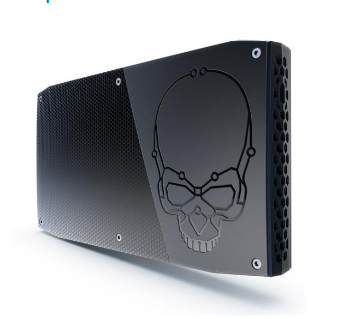
Intel Skull Canyon is the NUC of your dreams -- Core i7 6770HQ, DDR4, NVMe, Thunderbolt 3
Having a powerful computer does not mean having a large computer. Big power can come in small packages. While giant towers have long been the darlings of many gamers and technology enthusiasts, smaller boxes are starting to gain traction too. With Micro ATX, Mini ITX, and even smaller form factors, consumers can achieve performance while saving precious desk space.
When it comes to diminutive offerings, Intel's NUC is one of the most popular. These computers are small, attractive, powerful, and affordable. While they run Windows fine, they really shine on Linux, where all components work out of the box. Today, Intel announces its most powerful NUC yet -- the seductively named Skull Canyon. Powered by a super-powerful Skylake processor, it also has tons of new tech crammed inside. You can even connect an external gaming GPU, like the new Razer Core, by way of Thunderbolt 3!
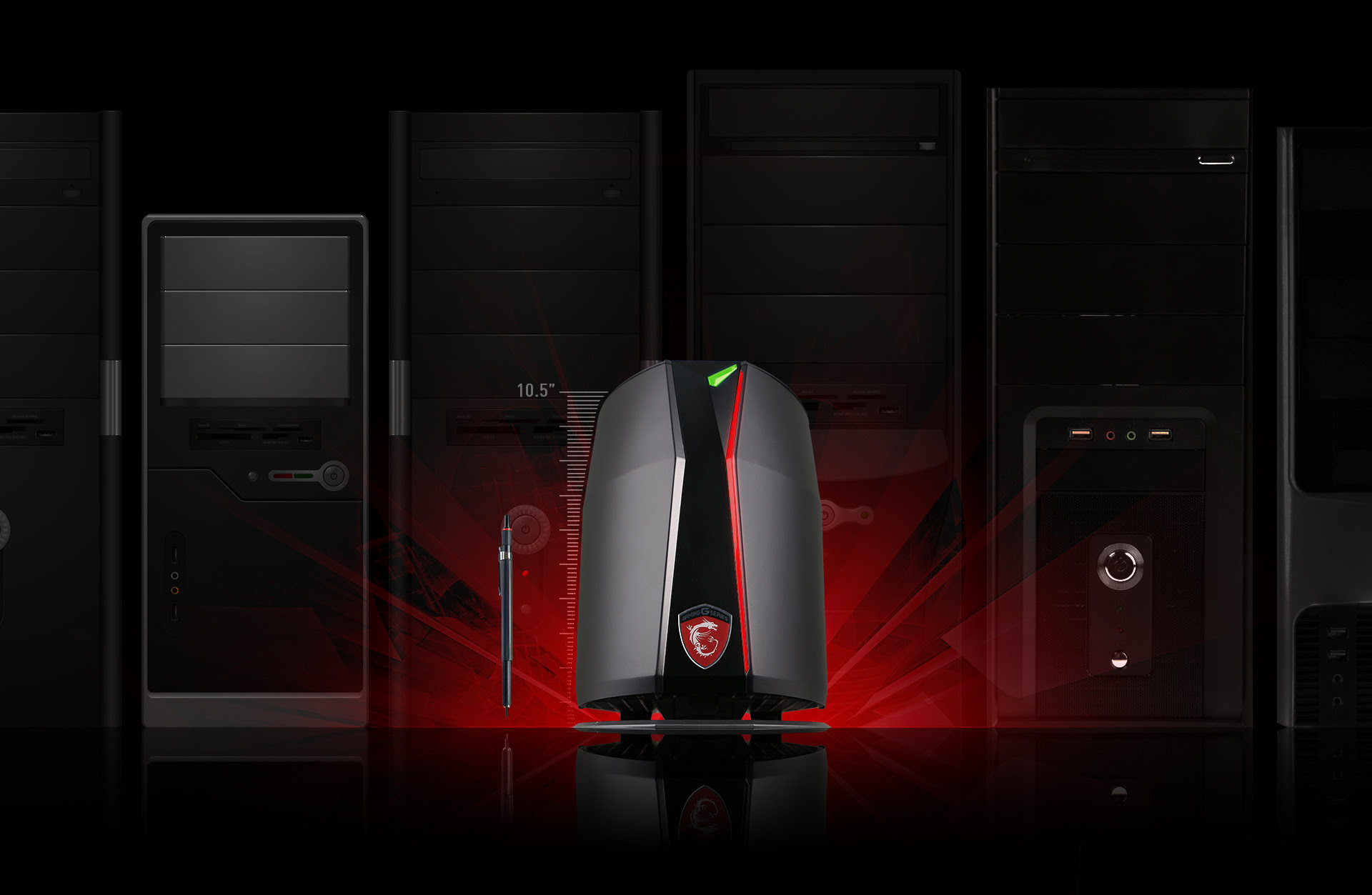
MSI Vortex mini gaming PC has up to 64GB DDR4, Intel Core i7 Skylake, dual NVIDIA GPU
When it comes to gaming PCs, I prefer to build my own. Selecting the components, piece by piece, can be very rewarding. If you are on a budget, it is often more affordable than buying a pre-built machine too.
While many hardcore PC gamers would pooh-pooh buying an already-assembled computer, sometimes a tower comes along that is so special, that all rules go out the window. Today, such a special PC begins shipping to consumers. The MSI Vortex is a tiny gaming PC in a cylinder-shaped chassis. It is sort of like Apple's Mac Pro in outward appearance, but the comparisons stop there.

Do managers really know what's happening in their data centers? [Q&A]
A new survey from Intel Data Center Manager and Dell reveals that around half of IT managers don't really know what's happening in their data centers.
It also finds that only 53 percent of IT managers use DCIM systems, which provide critical info about power and thermal usage, despite the fact that 44 percent experience power issues and 37 percent cooling issues in their data centers on a weekly basis.
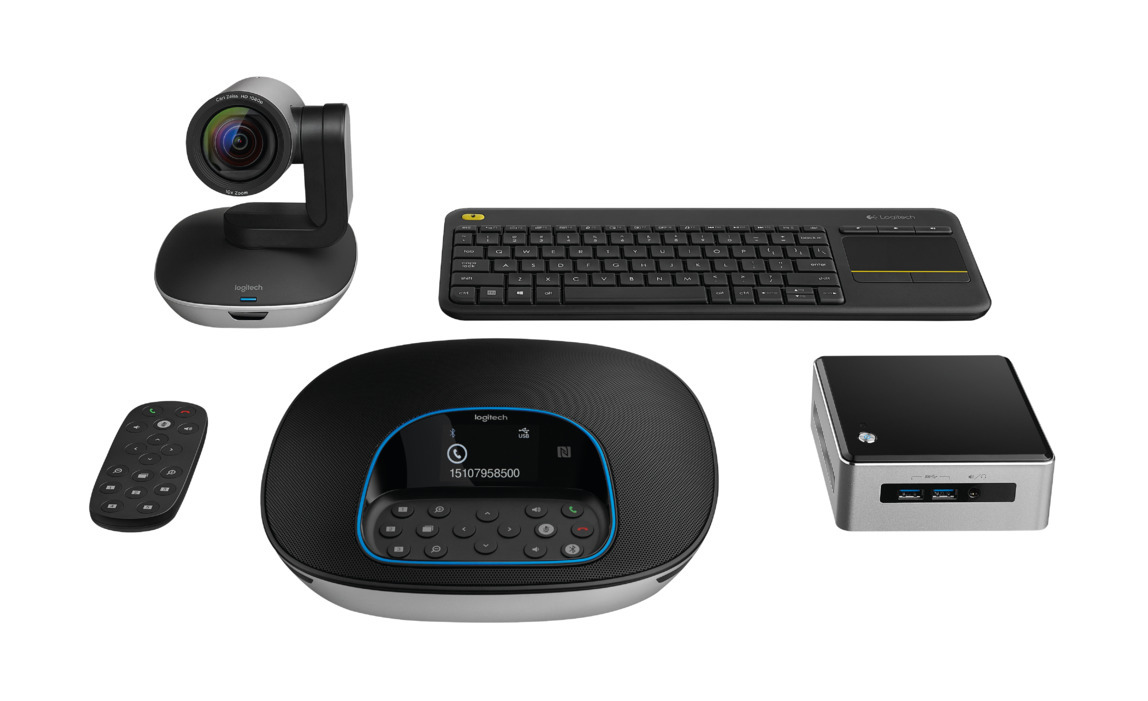
Logitech announces Intel NUC-powered 'ConferenceCam Kit' video conferencing bundle
In the year 2016, you would think videoconferencing would be very prevalent in business offices. Unfortunately, many solutions are expensive and confusing -- audio-based conference calls are still quite popular. In order for video conferencing to truly take off, it must be both easy to setup and use.
Today, Logitech announces the ConferenceCam Kit -- a video conferencing bundle powered by the powerful, and diminutive, Intel NUC. Will it prove popular with businesses?

New solution aims to eliminate passwords in the workplace
Passwords are increasingly seen as insufficient to protect sensitive systems and companies are looking for more secure alternatives.
Digital identity company Intercede is introducing new software that works with Intel's latest Intel Authenticate technology with the aim of eliminating workplace passwords entirely.
Microsoft forms IoT-focused Open Connectivity Foundation with Intel, Samsung, and others
As someone who is historically an early adopter of technology, I surprised myself when I didn't jump head-first into the Internet of Things. Don't get me wrong, I love the IoT concepts of the connected home and smart appliances, but a lack of standards make me hesitant. As of now, my house has but one such device -- a WeMo smart outlet so I can turn on a lamp with an Amazon Echo.
A lack of standards for IoT is extremely problematic, but luckily, companies are realizing this dilemma. In fact, Microsoft announces the IoT-focused Open Connectivity Foundation with partners Intel, Samsung, Cisco and more. While this coalition is a step in the right direction, I am sure there will be many competing groups vying for adoption; the fight could last many years.
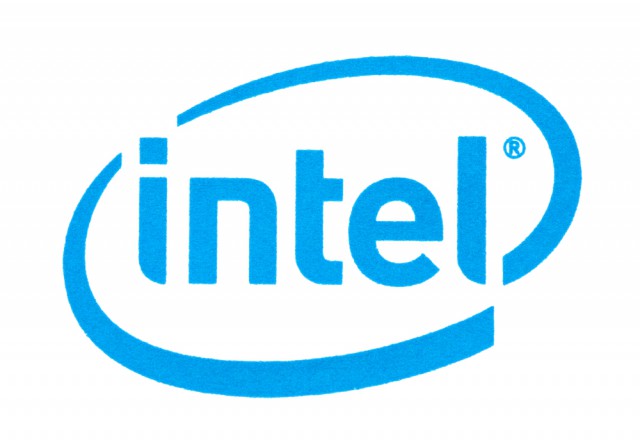
Intel may soon launch 10TB SSDs
Intel’s SSDs may soon see a significant increase in their capacity and speed as a result of Micron’s latest chips, which could also be used to create competitive SSDs that are as small as flash drives.
Micron is responsible for producing the flash which is used in Intel’s SSDs and now it has begun manufacturing and distributing its 3D NAND flash in large quantities. The company’s 3D flash chips would allow tiny SSDs to reach a capacity of 3.5TB, and 2.5 inch SSDs could possibly hold even more than 10TB of storage.
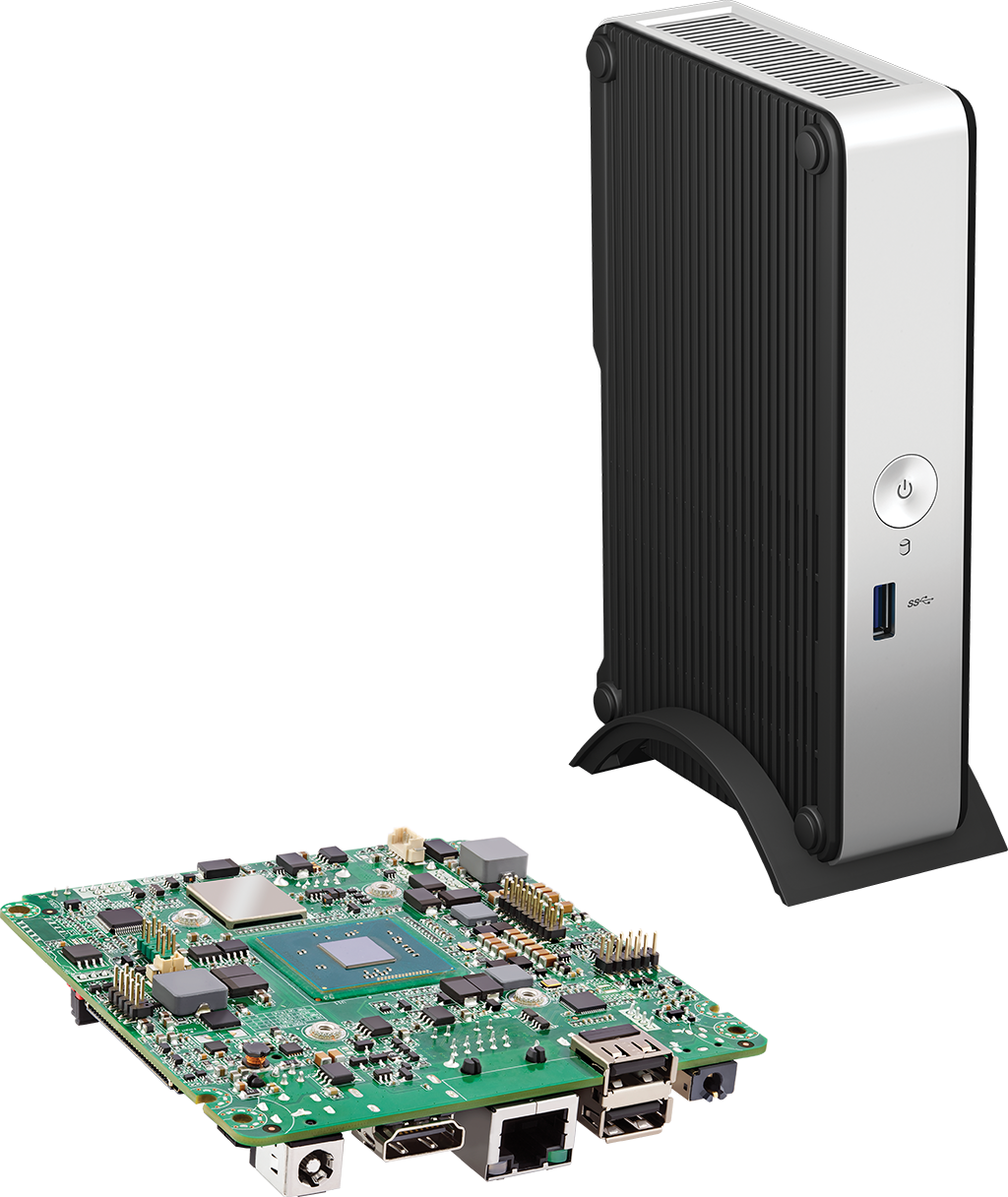
Canonical releases Snappy Ubuntu Core Linux image for x86-based Intel NUC DE3815TY
The Raspberry Pi is a game-changing computer. While it was primarily designed as a low-cost base on which students could learn to code, it has proven to be much more. Some consumers buy it for HTPC purposes, but more importantly, developers embrace the little computer for other projects, such as IoT.
Unfortunately for some developers, the ARM architecture and rather anemic performance make the Raspberry Pi a poor choice. While some consider ARM to be the future, I'm not so sure -- x86 has been surprisingly adaptable. Today, Canonical releases an Ubuntu Core image for the x86-based Intel NUC DE3815TY. Priced around $150, this NUC is more expensive than the Pi, but it is much more powerful too; a better choice for developers needing an x86 platform.
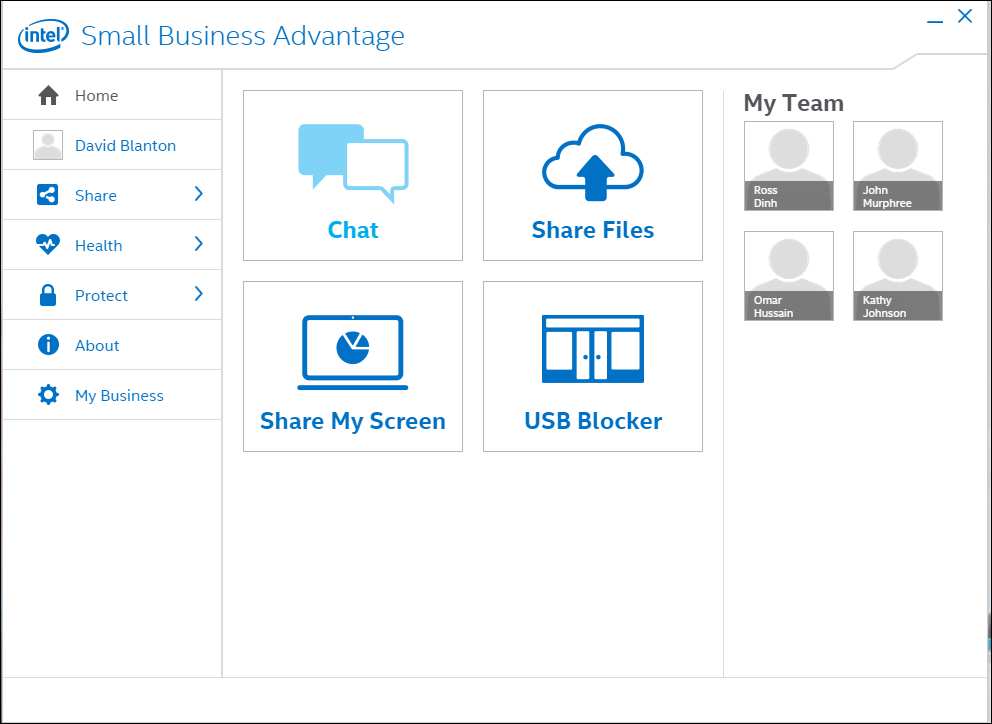
Intel aims to make life easier for small businesses
Small businesses make up around 17 percent of the total PC market, yet often they don’t have dedicated resources to manage their systems.
Chip maker Intel has spotted an opportunity here and is launching its Small Business Advantage program, offering a blend of systems management and business collaboration.
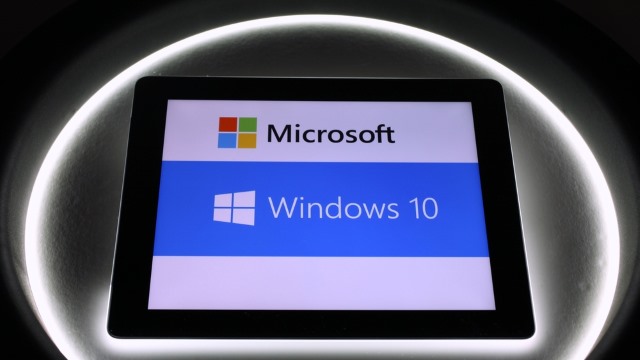
With Windows 7 in its death throes, Microsoft reveals the Skylake systems that retain support
Windows 8.1 is old, Windows 7 is all but decrepit, and Microsoft is now all about Windows 10. The somewhat aggressive pushing of Windows 10 to consumers has been criticized, and this reached something of a head last week when Microsoft announced that nextgen CPUs will only support Windows 10.
Building on this announcement, Microsoft has published a list of more than 100 Skylake systems that will offer Windows 7 and Windows 8.1 support -- until July 17, 2017, that is. In spite of Microsoft's eagerness to push consumers and businesses to Windows 10, there are still dozens of systems from Dell, HP, Lenovo, and NEC that can be configured with the older operating systems.

Prediction #9: Intel starts to become irrelevant
I know I promised that my next 2016 prediction would be Apple’s big acquisition, and I will publish that prediction soon as my #10, but right now I just have to say what a perilous position Intel is in. The company truly risks becoming irrelevant, which is an odd thing to say about a huge, rich outfit that would appear from the outside to pretty much dominate its industry -- an industry the company created. Intel won’t go away, I just think there is a very good chance it’ll no longer matter.
We’re approaching the end of the closed, proprietary, single source technology era. ARM processors are freely licensed, more open, and much more cost competitive than similar products from Intel or AMD. If you need 10 million chips for your next product do you buy them from Intel? Or do you get a license from ARM and hire a foundry to make them for you?

Intel introduces 6th generation Core vPro processor family for office PCs
Intel has just announced new processors for office computers. The 6th Generation Intel Core vPro processor family is designed "for the modern workforce" and comes with a few innovations to keep office life tolerable.
Intel says the new processor offers "2.5 times the performance and a 30-times increase in graphics performance over a 5-year-old device", providing users with much more productive and powerful business tools.

AMD says SYSmark benchmarks are Intel-biased and don't reflect real-world usage
Chip maker AMD has complained that the popular benchmarking tool SYSmark is biased toward rival Intel. The company says that the software focuses far too much on CPU activity and that this is not reflective of real-world computer use.
In a stern video, John Hampton and Tony Salinas from AMD compare SYSmark benchmark with results from Futuremark's PCMark 8 as well as scripts devised in-house. Comparing an Intel Core i5 with a 'comparable' AMD FX chip, SYSmark was found to report a much greater performance difference -- in Intel's favor. AMD describes this as "quite astonishing and not realistic".

Intel Skylake-based PCs freeze during complex workloads
A bug in Intel’s Skylake architecture was discovered by a team of mathematicians called the Mersenne Community. The group has been using Intel systems to search for prime numbers for the past 20 years and had yet to encounter any problems until now.
According to the Mersenne community, they experienced system freezes while running GIMPS (Great Internet Mersenne Prime Search) Prime95 software. By employing tens of thousands of machines to run hand-coded assembly language 24 hours a day, this group has found all of the record prime numbers during the last 20 years.

Microsoft and Rambus team up for quantum computing research
Researchers at Microsoft are partnering with Rambus in order to evaluate the future memory requirements of quantum computing.
The two technology firms will share their resources and expertise in order to determine the types of computer architecture that will provide the biggest improvement to memory capabilities and overall system performance. Gary Bronner, vice president of Rambus Labs said that existing architectures are struggling to meet the increasing demands of real-time data consumption.
